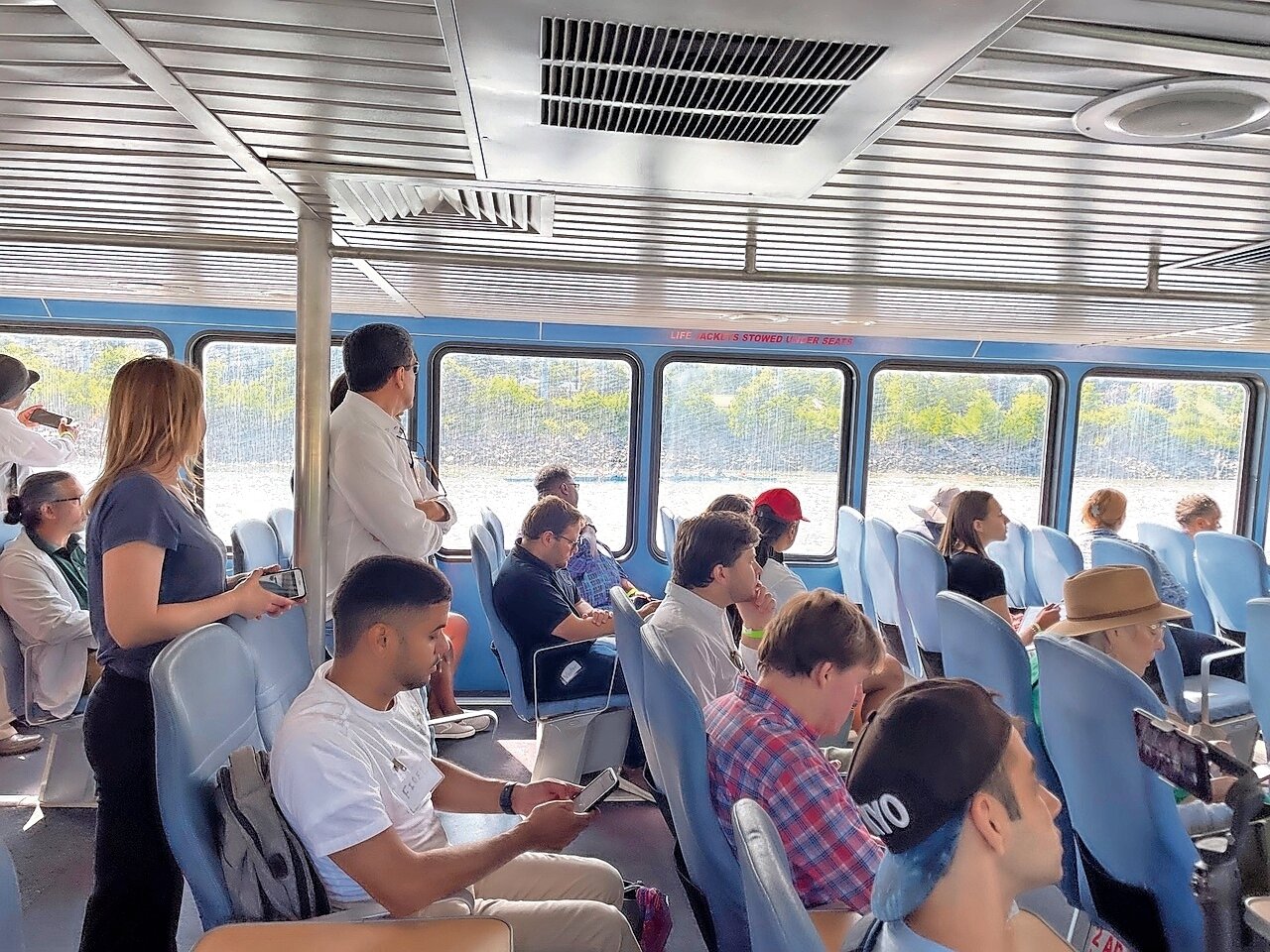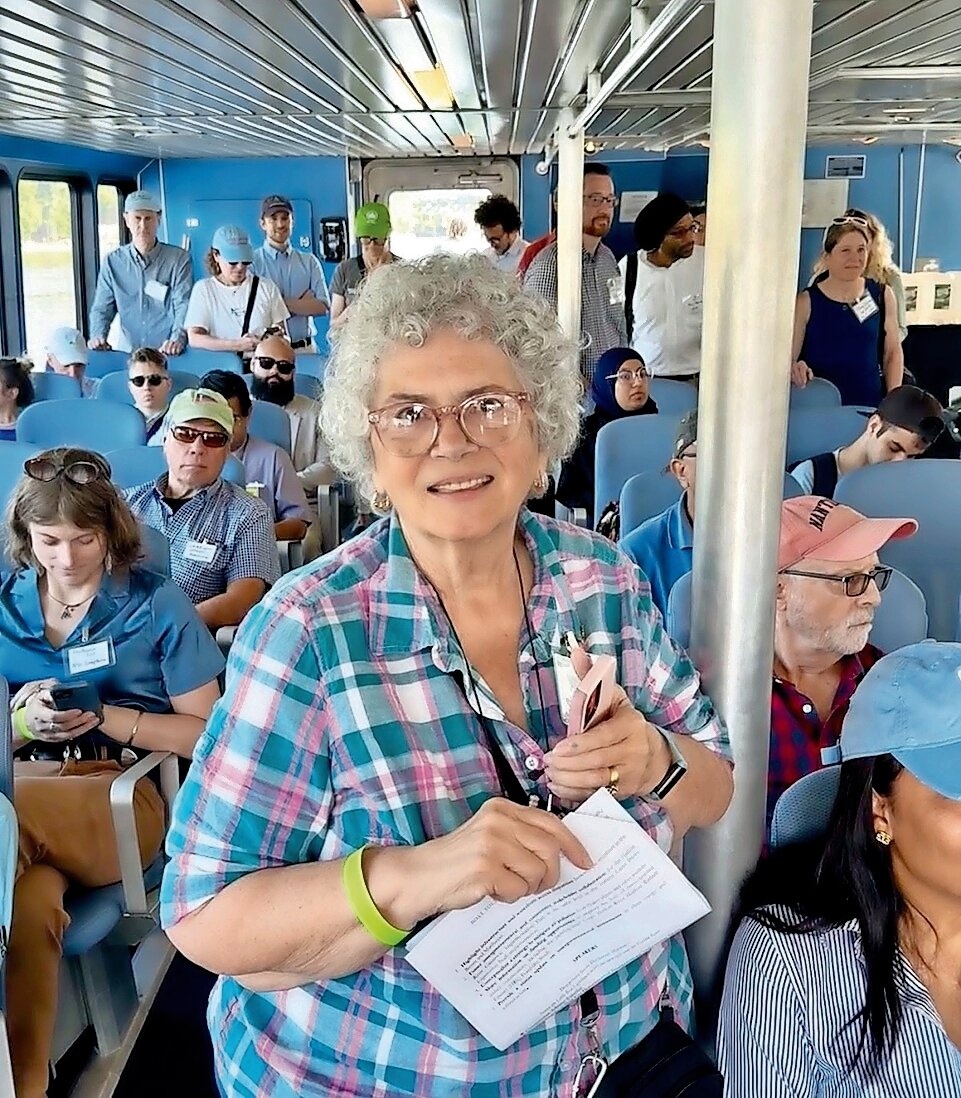Harlem River tour boosts environmental efforts and community engagement
Last week marked the third anniversary of an environmental boat tour hosted by U.S. Rep. Adriano Espaillat, traveling along the Harlem River from Dyckman Marina.
This year’s tour aimed to identify potential sites for more in-depth wildlife rehabilitation studies and shoreline “greening” efforts.
Karen Argenti of the Bronx Council for Environmental Quality said there were approximately 130 passengers, split between Manhattan and the Bronx, including city legislators, members of local green organizations and Fordham University students who shared their research and ideas for future environmental projects to enhance and clean the Hudson River.
Earlier this year, the Council for Environmental Quality secured a grant, authorized by U.S. Rep. Ritchie Torres, to fund the Army Corps of Engineers in surveying the Harlem River’s water quality. This initiative will channel funds within the environmental budget to collaborate with the Army Corps’ engineering with nature program focusing on green infrastructure and integrating manmade and natural systems.
Historically, public use of the Harlem River has been challenging, due to a lack of physical infrastructure, such as docks, and concerns about water cleanliness. Argenti said there have been ongoing discussions about improving river access in greater Riverdale, as the nearest dock is currently at Roberto Clemente State Park. While there is a yacht club on the Hudson, she said a public dock in Spuyten Duyvil might help facilitate a closer relationship between the community and their waterways, enabling activities like kayaking and fishing.
The Tibbetts Brook project, currently expected to begin construction in 2025, was another topic of discussion, as plans to bring the buried creek above ground will help divert flooding and enable the river to be cleaner, eventually enough for safe swimming.
Argenti said there are plans to increase vegetative “islands,” like those at the base of the Harlem River, specifically at the Bronx Kill, between the south Bronx and Randall’s Island. These islands, accessible on foot during low tide, offer the opportunity for people to interact with the river safely, helping to connect those who have never considered the river a place of recreation.
For about a dozen years, Wilderness Inquiry, a national organization based in Minnesota, has introduced Bronx middle-schoolers to the Harlem River in a new way through their Canoemobile program. This initiative aims to break down barriers and provide children with better access to natural spaces close to home.
In collaboration with community partners, students are taken out on the Harlem River in 10-person canoes, creating a “floating classroom” where they can learn about and interact with the river. Most programming is conducted from the docks at Roberto Clemente State Park, with occasional excursions to Van Cortlandt Lake.
Willy Tully, external relations director of Wilderness Inquiry, said the past several years have witnessed significant development along the Harlem River in the Bronx, centered upon beautification efforts and transforming the river into a more valuable community asset.
Tully emphasized the dual importance of infrastructure investments and education in fostering community engagement. Many students involved in the Canoemobile program have discovered the river is not just a visual aspect of their community but, with the right tools and support, a place they can learn from and explore.
“The river can be a really incredible platform for learning,” Tully said, “for health and wellness, as well as educating younger generations to help build lifelong lovers and stewards of the outdoors.”
Argenti said that those interested in gaining a deeper appreciation for the Harlem river should consider renting a boat.
“We really need to get that water clean, and the only way to do that is to get people out on the water and see how beautiful it could be,” she said.










